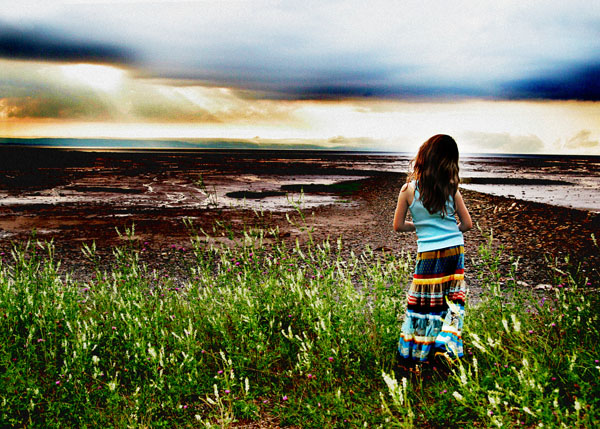An ode to Photoshop
 Thursday, January 10, 2008 by
Thursday, January 10, 2008 by  Karen Walrond
Karen Walrond 
When I first started shooting with a digital camera, I was very anti-Photoshop. "Hmph," I sniffed, "Photoshop is used by people who don't know how to take photos. Besides, the digital manipulation of photography is just plain dishonest." And then I would turn my heel and vanish in a cloud of self-righteousness, retreating to my little cave, while secretly lamenting the fact that every photo I shot didn't look anything like I thought it looked like when I first framed it in the viewfinder of my camera.
Then one day, I was at my local camera shop, confessing to one of the guys that I worked there that I really wished I could get the kinds of images other people got. "Like that one," I said, pointing to the display image behind him. "Why don't my photographs look like that?"
"That?" he smiled. "It's a great shot, agreed, but you realize that that's been digitally manipulated, right?"
"NO!" I responded, in horror. "Seriously? That's not just the shot he took? How... how... disappointing!"
"Why?" he asked, genuinly confused. "There's nothing wrong with Photoshop, Karen. It's just processing - similar to what we used to do with chemicals, back in the olden days. I mean, do you really think Ansel Adams really shot those beautiful pictures without dodging and burning and manipulating the processing of the photograph?"
As soon as he said this, I felt the clouds part, and angels singing on high. Of COURSE. Photoshop isn't a tool of dishonesty and deception, after all -- it can actually be used to convey what the photographer saw through the lens.
Since then, I've become a huge fan of Photoshop, and find myself seeking out the work of other photographers who use Photoshop -- some are true artists with the software. One of my favourites is Mark Tucker: what he does with Photoshop is truly magical, but I'm always on the lookout for more.
Who are some of your favourite Photoshop magicians?

